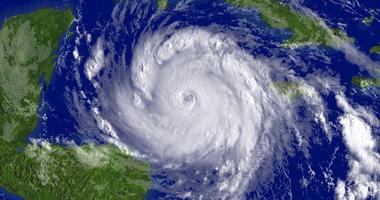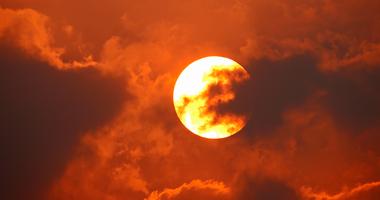
Letter from Asheville
Notes from the storm that was never supposed to hit us.
4 min read
By Peter Conroy, Senior Writer
The first rule of climate disasters is that they always happen elsewhere. Until they don’t.
Rule number two is that you are not prepared.
There are no other rules.
More than two weeks after Hurricane Helene tore through Asheville and Appalachia, nothing makes sense.
Definitely not the quiet river road along the Swannanoa full of blank spaces after floodwaters erased half the neighborhood. Including a sturdy A frame my wife had transformed into a rental business to support our family.
Trying to reach the house the day of the storm, we came to a road underwater and a couple squatting on the pavement, staring blankly at the devastation.
We were trying to find another way to get down to the end of the road, we told them. “We have a house down there.”
“No,” the man said, “You had a house down there.”
A neighbor showed us the video. Maybe some language has a word for how your knees buckle watching years of love and labor and your life savings literally float down the river. But English simply fails.
Another neighbor who lost her house comes down to the same river bank every day to tend a flock of geese and weep. Stories of unimaginable loss are all around and you cannot talk about your own experience without survivor’s guilt creeping in. Even those who came through safely can still mourn the pre-storm lives they lost.
Watching Hurricane Milton last week inflict misery on millions in Florida only adds to the sadness. The initiation to the club of climate disasters is a rite you would not wish on anyone.
Like an unfaithful partner, Helene stole the trust between you and the natural world – and there is no repairing the breach. After a house-shaking crash of branches coming through the ceiling just feet away, trees now hold the menace of a stranger with a knife.
Water – once too much everywhere and streaming in from all directions – is now precious beyond measure. The pitter-patter of rain drops triggers an instant fight-or-flight alert.
The experience has been transformative beyond the sadness. Some days the exhaustion and the thought of everything ahead are crushing and I feel like the lead act in a village theater Beckett play, silently repeating, “I can't go on. I'll go on.” Other times I see the opportunity for a deep reimagining of life and an object lesson in what actually matters.
For almost two weeks, my family – my wife, two teenagers, two dogs, two pet rats, and a 15-week old puppy who always has to pee at the worst times – has been shuttling between family, hotels, and our dark home in Asheville. Now we have the luxury of a rental cabin in the hills and can plan for a week at a time. Stability, water, power. As Joan Jett had it, “You don’t know what you’ve got ‘til it’s gone.”
I long for reliable power, water, and internet. But do I long for a return to whatever normal was before the storm? After losing almost every bit of clothing I owned to storm damage, I’ve traded familiar name brands for Goodwill finds and donations. And that feels ok. Today it’s a Cookie Monster t-shirt that tells the world: “Keep Calm and Eat Cookies.” It’s become the new family mantra.
Days have been set to the clock of 4pm presentations from the city water manager, a quiet superhero delivering the same message to thousands short of water and patience: Be patient. Just as the Olympics turn us all into experts in the nuances of ski jumping and gymnastics, we're all amateur expert hydrologists now, squinting at PowerPoints and nodding along when discussion turns to sediment settling. Yes, of course, we say knowingly, more rain now could be a setback.
In between the relief operations and the hassle of carrying water, there are real moments of hope that flicker like candles in the dark. The story you hear of a guy using pack mules to carry food and water to families trapped high up mountains no motor vehicles can reach. The grading crew that drove down from West Virginia on their own dime and chainsawed half a forest of fallen trees to get our river road clear. All without asking for a dollar. The columns of utility trucks and heavy-duty equipment on the highway that evoke the same awe as the “Ride of the Valkyries” helicopters in “Apocalypse Now.”
Seeing the tireless work of FEMA and utility crews, my nomination for the Nobel Peace Prize is enroute to Norway. Everywhere the refrain is simply, "How can I help?"
Already, the news cycle is moving on. The world outside Appalachia has a life to live in a completely different reality. Calling to cancel internet service to a house that no longer exists, the voice from Spectrum Cable asks if you can return the modem.
The cosmically unfunny joke here is that our family came to Asheville in part to escape the endless drought and wildfire haze of our Colorado home. The origin varies but the same story is all around. As a friend said, surveying the mashup of mud and concrete where our house had been, “This wasn’t supposed to happen here.”
And because our solar panels, heat pump, and little electric car alone couldn’t protect us, I can’t shake a quiet fury at the all the deniers and politicians and oilmen who’ve stood in the way of the system change that could. Who will never see enough suffering to change. Because like death, and taxes, one thing that’s certain is that more is on the way unless we do change. And fast.
Maybe you think it’s not that urgent in light of work and family and the million other things that run your everyday. Maybe you look at the odds and assume a climate disaster won’t happen to you.
Yeah. We thought that too.
Keep calm and eat cookies.




